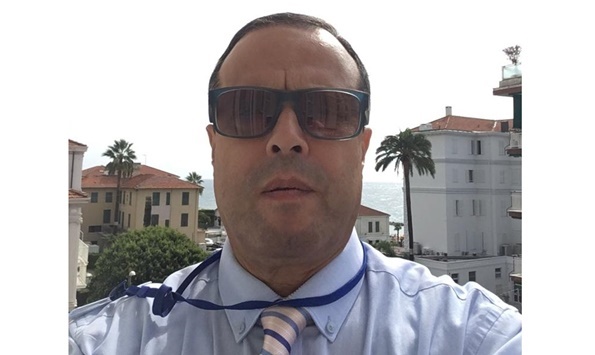Under the patronage of HE the Prime Minister and Minister of Foreign Affairs Sheikh Mohammed bin Abdulrahman bin Jassim al-Thani, the Doha International Center for Interfaith Dialogue (DICID), in collaboration with the Multi-Faith Neighbors Network (MFNN), held Tuesday the opening session of the International conference “From Religious Freedom to Religious Responsibility: Peacemaking in a Destabilised World” in Doha.
In his opening address Prof Ibrahim bin Saleh al-Naimi, the Chairman of DICID said: “The name of the Islamic religion stems from peace, and it is a religion of love, brotherhood, and mercy. In our consultations to choose the topic of this conference, we were keen to include two words in its title (building peace and a conflicting world) because in reality, in our world today, they have become the utmost aspirations of the faithful, and the harshest things that disturb their sleep and sadden them, but at the same time, they will not extinguish the ray of hope in their hearts so that they may work with co-operation and determination to return this world to its senses and warn it of the consequences of its insistence and stubbornness; if these conflicts that surround it from every side continue like a bracelet surrounds the wrist.”
Al-Naimi added: “From this standpoint comes the importance of this conference; to confirm through it that religious values and teachings are the only guarantee to confront the conflicts witnessed by many countries, especially (in the Middle East), and cause crises at all levels. The day that a person adheres to the values and principles of his religion, it will certainly be the first line of defence against the evil tendencies of his soul to conflict with others, and the motivator and caller for love, peace and coexistence with others.”
He highlighted that "the quest to open horizons for dialogue to build true peace between individuals and societies has been - and still is - one of - indeed the most important - pillars on which our mission at the DICID is based. Through many years and numerous projects of co-operation with religious leaders, global dialogue centres, scholars, thinkers and opinion leaders, we have strived to build bridges of convergence and joint work between all parties for dialogue and discussion about the challenges that prevent coexistence and peaceful coexistence between followers of religions and cultures.”
Al-Naimi went on to say: “No-one disagrees on the importance of the role of religious institutions and religious leaders in launching and leading peace-building efforts, especially in times of conflict and war; they are the most worthy of being mediators for calm by creating an appropriate environment for dialogue, facilitating negotiations, and promoting reconciliation.
Hence the importance of such meetings between us, and our gathering from different countries with different religions, ethnicities and diverse cultures to search together not only for the reasons for the continuation of these conflicts and ways to confront them, but also to try together to find future solutions that prevent them from happening in the first place or at least reduce them. This will not be possible for us except by building trust among us, to be transmitted honestly and faithfully to our countries and to the societies that we represent and whose religious and intellectual leadership we represent.
Al-Naimi recalled that “Qatar has established its name as a reliable international mediator and an influential player in mediation to resolve conflicts and build peace, and has succeeded in doing so in many of them, such as signing the Doha Agreement on Lebanon in 2008, the reconciliation file between Djibouti and Eritrea in 2011, the Darfur Peace Document in 2011, the Washington-Taliban Agreement in 2020, and Doha hosting peace negotiations between the conflicting parties in Chad in 2022. Recently, we have witnessed the vital Qatari role in joint efforts with Egypt, the United States, and the Hamas movement to reach a humanitarian truce agreement in Gaza and exchange prisoners between Hamas and the Israeli occupation.”

A section of the audience at the conference. PICTURES: Shaji Kayamkulam

Prof Ibrahim bin Saleh al-Naimi

